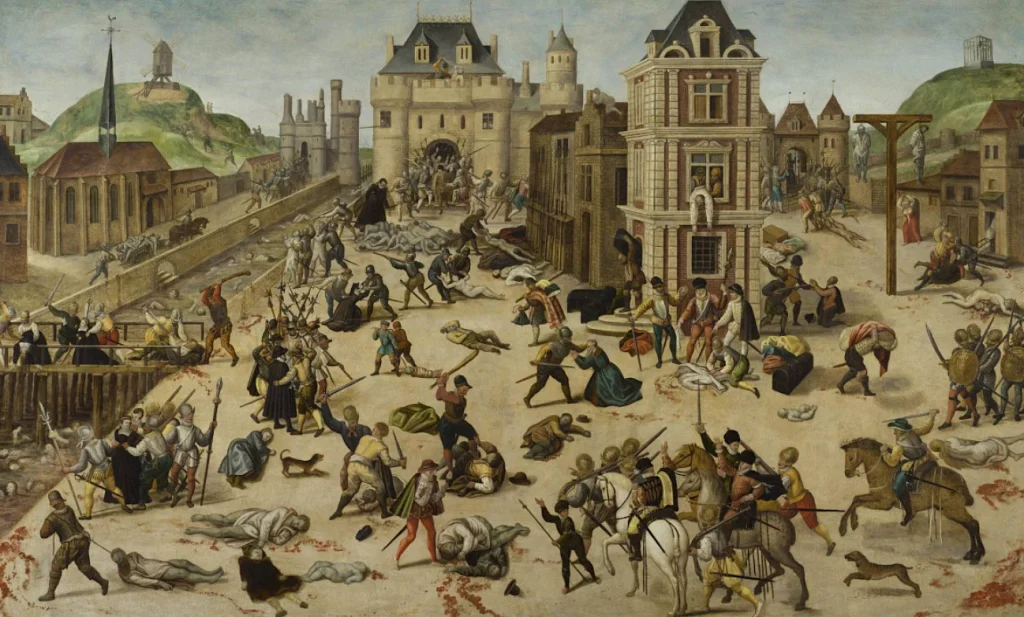Lessons From the Religious Wars

Only an intact Constitution can protect us from tribal and ideological warfare.

A few days ago, I saw a report that James “J.R.” Reeves—Chief Information Officer and IT Director for U.S. Agency for Global Media (USAGM)—has long been in the habit of referring to white people on his Twitter account as “snow roaches” and has written multiple jubilant messages about the demographic decline of “snow roaches.”
The kind of tribalism in which an entire race or ethnic group is dehumanized and likened to vermin has, throughout history, been the opening gambit of policies that have eventually culminated in grave persecution.
Mr. Reeves Twitter posts prompted me to ponder the St. Bartholomew’s Day Massacre in France. As defined by the World History Encyclopedia, the massacre:
was a widespread slaughter of French Protestants (Huguenots) by Catholics beginning on 24 August 1572 and lasting over two months, resulting in the deaths of between 5,000 and 25,000 people. It began in Paris when the Catholic faction, fearing a Huguenot uprising, assassinated the leading Protestants who were there for a royal wedding.
Sir Francis Walsingham, who later became Queen Elizabeth I’s secretary, witnessed the massacre, and the experience persuaded him that a resurgent Catholic monarchy in England might do the same. His brother-in-law Robert Beale, who was also in Paris at the time, reflected on the event as follows:
I think it time and more than time for us to awake out of our dead sleep, and take heed lest like mischief as has already overwhelmed the brethren and neighbours in France and Flanders embrace us which be left in such sort as we shall not be able to escape.
As Elizabeth I’s secretary, Walsingham achieved fame and notoriety for foiling various plots (supported by the Catholic monarchies of France and Spain) to depose the protestant Queen Elizabeth. In many respects, the rise of England as a great maritime power can be credited to Walsingham and his friend, Sir Francis Drake, whom the Catholic Spaniards called “El Draque”—the Dragon—for his ferocious raids of Spanish ports and ships.
The great religious wars of Europe of the 16th and 17th centuries are a frightening example of the terrible things that large factions—both animated with fervent belief in their moral superiority—can do to each other when they are not constrained by laws that are equally applied to all political parties, races, and religions.
The religious wars teach us the critical importance of maintaining the integrity of the U.S. Constitution. This task is the primary duty of all three branches of the federal government.
Originally published on the author’s Substack.
One of our country’s most important freedoms is that of free speech.
Agree with this essay? Disagree? Join the debate by writing to DailyClout HERE.




